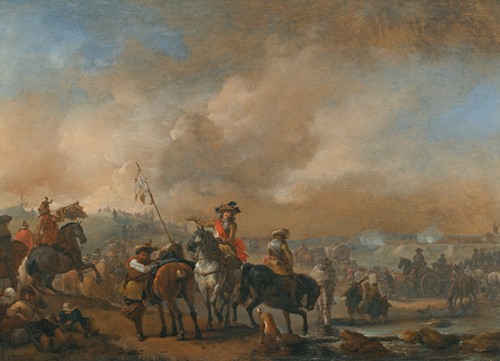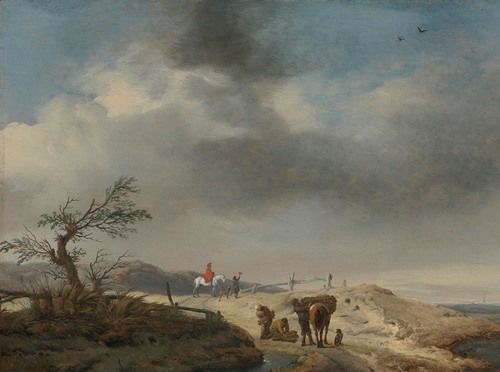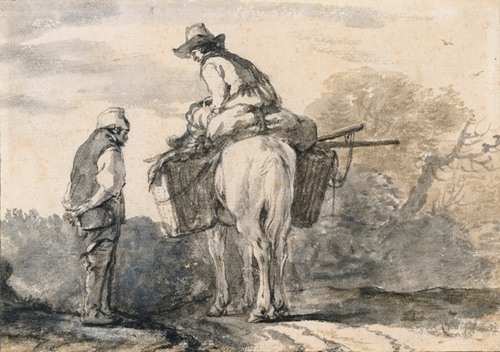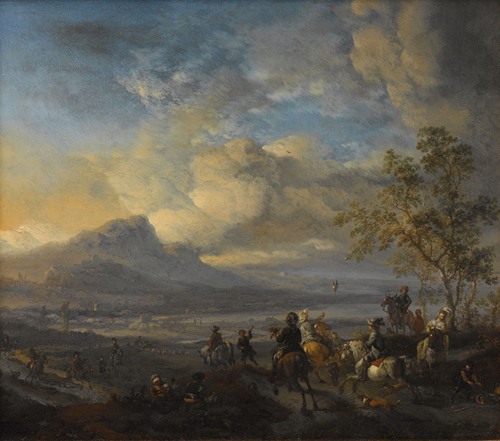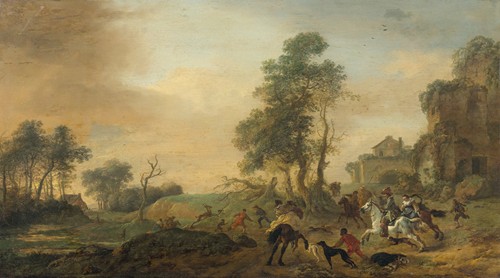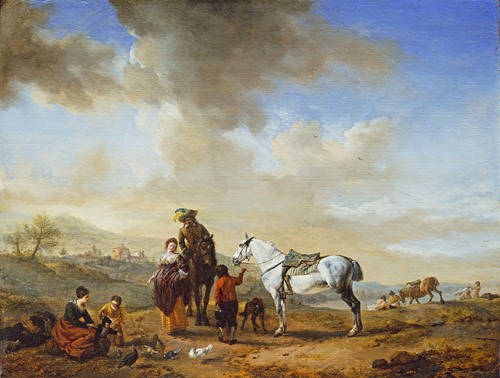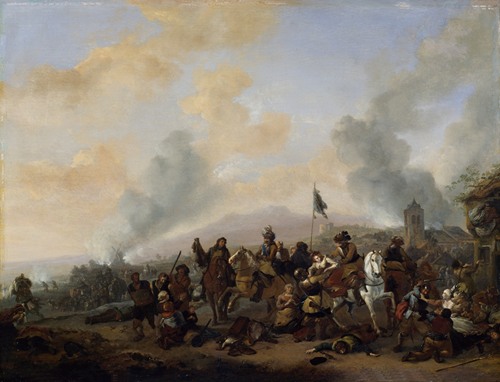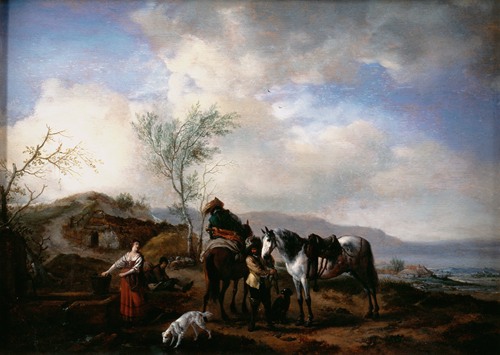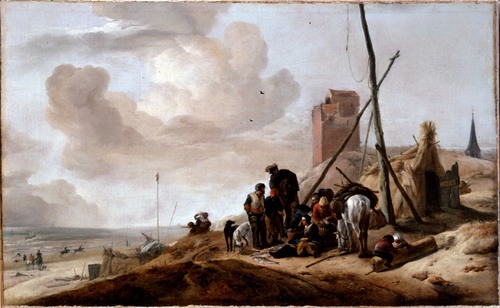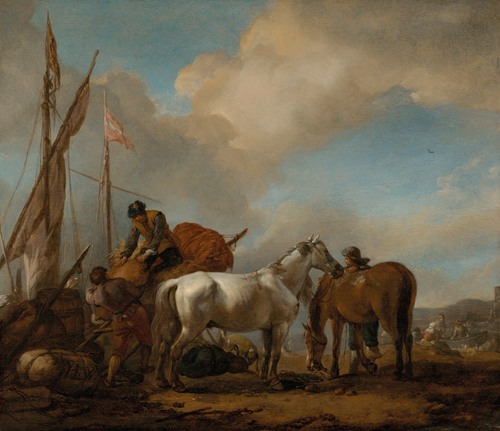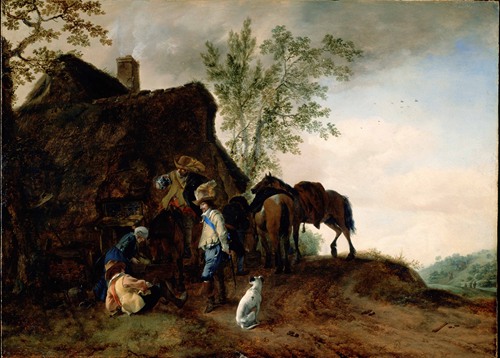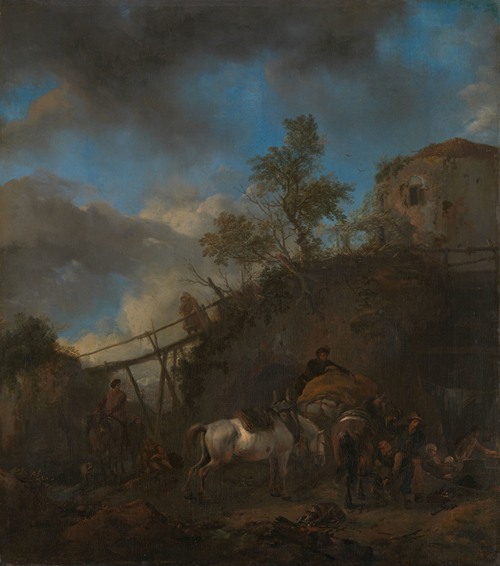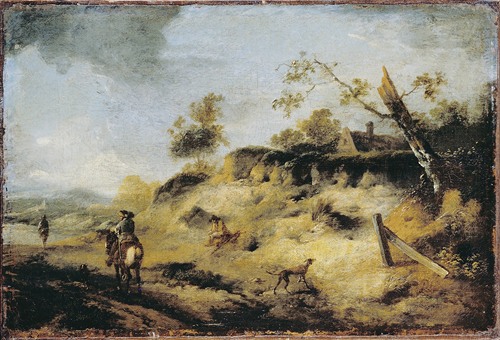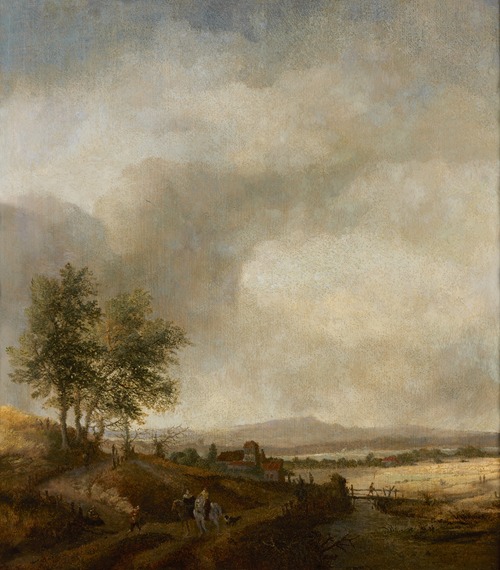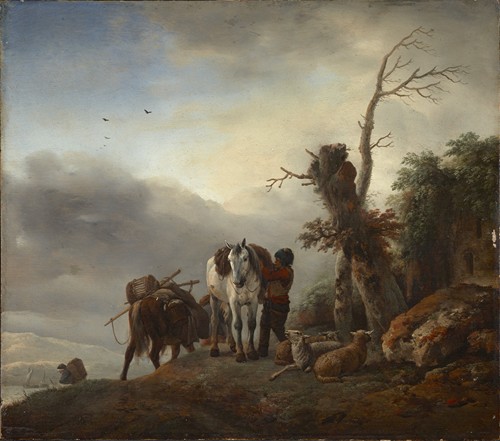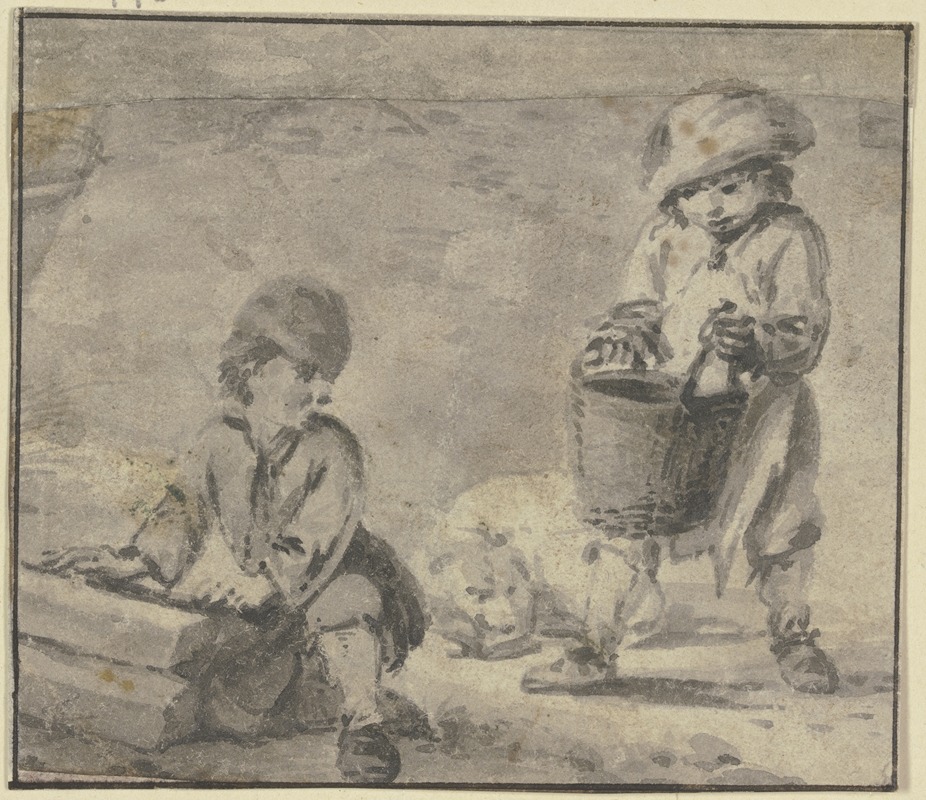
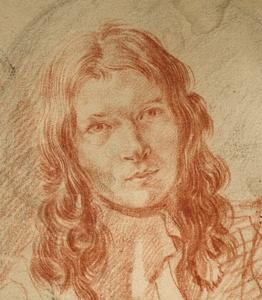
Philips Wouwerman (also Wouwermans) was a Dutch painter of hunting, landscape and battle scenes.
Philips Wouwerman was one of the most versatile and prolific artists of the Dutch Golden Age. Embedded in the artistic environment and tradition of his home town of Haarlem, Wouwerman made an important and highly influential contribution to the canon of seventeenth-century Dutch painting. His pictures were in demand during his lifetime, and even more sought after in the 18th century. Throughout Europe, formerly princely art collections like in Dresden and St. Petersburg still bear witness to this widespread admiration of Wouwerman's art.
Born in Haarlem in 1619, the son of a now altogether obscure painter named Pouwels Joostsz. Wouwerman, little is known about the artistic schooling of Wouwerman. According to Cornelis de Bie, he studied with Frans Hals (1581/85–1666), but the particular style of Hals didn't leave a footmark on his oeuvre. Apart from a short stay in Hamburg at the end of the 1630s, Wouwerman seemed to have lived in Haarlem during his whole artistic career and died as a prosperous member of the community at the age of 48. He joined the Haarlem Guild of St. Luke in 1640 and here took on several official posts in the years to come. Wouwerman also worked as an estate agent in his home town, as many documents in Haarlem archives mentioned the artist in this context.
Wouwerman started his artistic career with simple depictions of everyday life in the tradition of the bamboccianti by Pieter van Laer (1592/99–after 1642). His paintings of the mid-1640s often feature a diagonal slope of land, a tree which functions as a repoussoir, and figures accompanied by horses. Over the next thirty years he developed an individual style, treating a wide range of subjects from genre and landscape to military and religious scenes (equestrian scenes, hunting and hawking parties, landscapes with travellers, cavalry battles and military encampments, peasants festivities etc.). He is noted for his skill in the depiction of horses of all breeds seen in motion. The masterpieces from his best period (around 1650–1660) are of indisputably high quality, beautifully combining imaginary southern landscapes and a typically Dutch atmosphere. Wouwerman's paintings are characterized by subdued colours, a cool atmosphere and a wealth of witty, anecdotal details. He died in Haarlem.
More Artworks by Philips Wouwerman (View all 84 Artworks)
